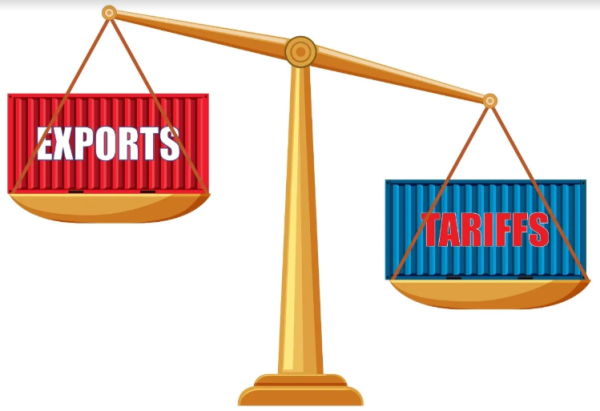Anti-Straw Movement Sucks in Supporters
It’s a scene that you have witnessed a thousand times over; your waiter sets a drink down on the table, ice clinking tantalizingly against the glass. They throw down a couple of straws before they leave you to enjoy your beverage. You tear the plastic straw out of the paper wrapping and plunge it into your drink, ready to enjoy. When you pick up a straw, you probably don’t think, Do I need this straw? The restaurant already provides you with one, so you might as well use it. It’s easy to forget you may not need a straw when one is already there. In recent months, these mundane straws, placed without prompting on the table in front of you, have transformed from simple, banal objects into a killer of wildlife, polluter of oceans, and Public Enemy #1.
Ocean Conservancy’s International Coastal cleanup reported that “straws and stirrers” were the seventh most common items collected from oceans, with a grand total of 643,562 removed from the waters. To put that into perspective, if all the straws gathered were to be stacked vertically on top of each other, they would reach a height greater than 10,000 palm trees combined. Millions more are still floating in the ocean. It was only a matter of time until straws became a serious threat to wildlife, and, just like paper bags and balloons, the straw has now become infamous for hurting sea turtles.
The modern straw movement gained momentum when a video of an Olive Ridley Sea Turtle with a straw stuck up its nose went viral. The researchers were able to remove the straw, but not without difficulty. The footage is not for the faint of heart; it contains graphic images and some strong language. This video served as a wake-up call for many, and the #stopsucking movement took off.
The appeal of the movement is easy to see. Its simplicity allows the people to make a change on an individual level, whether they purchase a reusable straw or simply avoid using straws needlessly, while large businesses can save money by cutting back on plastic straw usage. Several big names are gushing about the anti-straw movement. Starbucks recently announced that they plan to replace plastic straws with “sippy cup” lids at all their establishments by 2020. Some are applauding Starbucks for their cognizance of their environmental impact as a large chain business. Others, however, are incredulous, claiming it is nothing more than a grab for attention. These skeptics point to the fact that these new lids will still be made of plastic, so the plastic waste will most likely still be significant. Other businesses vowing to reduce use of plastic products include SeaWorld, Alaska Airlines, Ikea, and Caribbean Cruises.
It’s not just brands that are going straw-less. Seattle has become the largest city to officially ban straws. They’ve partnered with Lonely Whale, who advocate for “current trends in technology, media and advocacy that positively impact the health of our ocean.” New York City, Portland, and Malibu all have straw bans in the works.
The search is on for finding a straw material that is just as effective as plastic. Paper straws are biodegradable, but can become soggy when left in a drink for too long. Metal straws can be used endlessly, but pose a safety risk when used in a hot beverage. Some restaurants are opting for a slightly wackier option – pasta straws. They do work, but have a notably distinct taste that can be unpleasant.
As to be expected, the straw movement is not popular with everyone. Some say that the enthusiasm to reduce plastic straw usage will harm people with limited mobility, as plastic substitutes are not as resilient nor as bendy as the plastic straw. Others are frustrated that straws are in the spotlight when abandoned fishing gear makes up most plastic waste. In the same vein, some think that removing all straws from restaurants is too radical. These individuals support an “ask first” policy in restaurants, a trend started by 16-year-old Milo Cress. He was nine when he noticed people in the restaurant he was eating at taking the straws provided with their drinks and throwing them away. Bothered by the waste, he came up with a simple policy: Instead of removing all straws from the establishment, the waiter or waitress will simply ask the party who needs a straw, eliminating most mindless usage.
It’s still yet undetermined whether the anti-straw movement will permanently take hold in our cultural standards and environmental laws, but it’s certain that the trend will not be going anywhere anytime soon.












